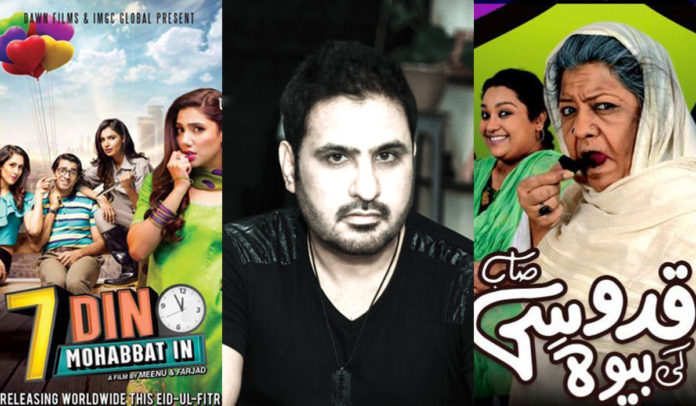In an interview to Naya Daur, the Qudusi Sahab Ki Bewah fame writer, Fasih Bari Khan, called the dramas being produced nowadays lacking any depth and being one-dimensional. He called out the digest writers for being the reason why the drama industry is suffering from the excess of mediocrity.
This naturally had us piqued, and we reached out to Fasih to get his detailed views about why he thinks this is the case.
Clear Lack of Research
The 7 Din Mohabbat In scriptwriter said that there is a “clear lack of research in the work of drama writers nowadays.” Taking the lead from Nadeem Farooq Paracha’s thesis on the Pakistani films of the 60s and 70s, Fasih said, “the writers don’t do proper research about the characters they are writing about and instead project their own notions and prejudices upon them. This causes the characters, and by extension, the story to become static and one-dimensional.”
He criticized the digest writers for not leaving their comfort zones. Fasih said that these writers don’t expand their horizons or enrich their experiences which would reflect in their stories.
“Instead, they repeat the same formula with the same kind of heroes and heroines and churn out multiple dramas. Watching one episode of such dramas is enough to predict how the entire story will turn out,” Fasih lamented.
The Fault in Our Content Heads
Fasih squarely blamed the content heads of the channels for being the root cause of why the Pakistani drama industry has been suffering from this. He said that these content heads, who once used to be digest-writers themselves, have come up with a formula for dramas which will bring them the most ratings. And they only allow those dramas to be produced which follow that formula.
He further explained the negative impacts of such controlled content and said that “it has started to tune the audience only to accept a certain kind of stories. In such a scenario, whenever a drama dares to be even somewhat different from the mainstream, it immediately gets rejected by the audience which further stops any kind of future experimentation.”
Difference Between a Digest and a Drama
Fasih explained that the language and style of a story written for digest and a story written for the screen are inherently different. But that difference doesn’t get shown in the dramas as the writers copy-paste the manuscript of their digest stories in the script for television adaptations.
Talking about names like Bano Qudsia and Afshaq Ahmad, Fasih recalled that the dramas written by those writers were the ones that the audience used to be crazy about. However, nowadays the content shown on TV has become so drastically similar to one and other that there’s nothing worth being excited about anymore.
Good Writers Are Still Present
Fasih, however, assured that there are good writers in the industry, but they aren’t willing to compromise the integrity of their work as per the channel’s requests. Therefore, they excuse beforehand, and the industry is left in the hands of digest writers to write as per their formulas.
However, Fasih is optimistic that times will change. Talking about how even the golden era of the cinema and television had come to an end, there will come a time soon when the age of mediocrity on TV will also end. He remains hopeful that the good writers will once again take charge of the industry.
This surely isn’t the first time a writer has criticized the digest writers of the industry. Khalil ur Rahman Qamar had also expressed similar views some time back. Fasih, however, clarified that his statements are not about someone specific, but for the industry in general.
With veteran writers expressing their concerns over the state of the industry, maybe the drama industry is on the way of some significant changes.




